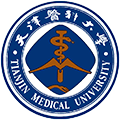Study in Tianjin Medical University About Tianjin Medical University & Study in Tijmu
About Tianjin Medical University
Tianjin Medical University was founded on June 16, 1951. It was the first medical institute approved by the State Council after the founding of new China. The first president of the university was Professor Xianyi Zhu, the renowned endocrinologist and medical educationist. The current party secretary of the university is Professor Zhi Yao, and Professor Yongfeng Shang, academician of the Chinese Academy of Sciences, is holding the post of the president of university. The former President Xishan Hao, academician of the Chinese Academy of Engineering, serves as the Honorary President. The university is one of the national “211 Project” key universities in China.
The development position of the university centers on research and education, and takes medicine as its core and life science as its main support to develop the university into a multi-disciplinary medical university. Tianjin Medical University currently has 9,040 full-time students, consisting of 5,138 undergraduates, 401 PhD students, 2,381 Master's students, and 1,430 international students from 60 countries.
TMU is one of the first eight pilot medical universities approved by the government for 8 years medical education and is among the first 15 pilot institutions to offer the seven-year medical program. Currently the university has 3 post-PhD research stations, 37 PhD authorizing units and 68 Master’s degree authorizing units, with 180 PhD supervisors, 612 Master’s student supervisors. In 2002, the university successfully passed the assessment by the Ministry of Education for undergraduate and seven-year programs of higher medical education with excellent appraisal. In 2008, the university once again passed such assessment with excellent results.
The university has a number of famous professors and scholars from home and abroad. There are totally 7366 professional and technical personnel, including 534 professors, 935 of associate professors, 2 academicians of Chinese Academy of Engineering, 1 academician of Chinese Academy of Science, more than 30 young middle aged experts, such as the Yangtze River Scholars and the specially invited professors, who receive subsidies of the national-level talent projects and get rewards of the outstanding contributions conferred by the National Ministry of Personnel and by the Ministry of Health, 163 experts who enjoy the State Department special allowance, and 29 experts conferred by Tianjin municipal government.
Currently the university has 5 national key subjects: clinical discipline of integration of traditional Chinese medicine and Western medicine, oncology, urological surgery, neurosurgery and endocrinic and metabolic diseases. There are 10 key construction subjects of the “211 project”: clinical discipline of integration of Chinese medicine and Western medicine, oncology, urological surgery, neurosurgery & neurology, endocrinic & metabolic diseases, imaging & nuclear medicine, pathogeny biology & immunology, pathology& pathophysiology, public health & preventive medicine and pharmacy. The university also has 9 key laboratories of provincial and ministerial levels.
So far TMU has offered major teaching in English in the following programs: Undergraduate Program: Clinical Medicine, Stomatology; Master Program: Clinical Medicine, Stomatology, Public Health & Preventive Medicine, Medical Imaging, Pharmacy, Biomedical Engineering, Laboratory Medicine; Doctoral Program: Clinical Medicine, Stomatology, Public Health & Preventive Medicine, Medical Imaging, Pharmacy, Biomedical Engineering, Clinical Medicine of Chinese and Western Medicine Integration, Laboratory Medicine. For those who’d like to receive the programs teaching in Chinese, the university arranges those who are qualified after the entrance examination to study in any specialty together with Chinese students.
Since 1996 the university has undertaken 1041 scientific research tasks of national, ministerial and commissional, and Tianjin municipal levels as well. It has received 328 science and technology awards at provincial and ministerial levels or above, out of which 11 awards of national level, 13 first prizes and 92 second prizes of provincial and ministerial levels.
The clinical teaching base has 7 university hospitals, 13 non-directly affiliated clinical schools and 9 teaching hospitals, with more than 15,000 teaching beds in total. The university hospitals include: Tianjin Medical University General Hospital, Tianjin Medical University Second Hospital, Tianjin Medical University Airport Hospital, Cancer Hospital affiliated to Tianjin Medical University, Tianjin Medical University Dental Hospital, Tianjin Medical University Metabolic Disease Hospital and Tianjin Medical University Eye Center. The General Hospital has won the title of national “A Hundred Good Hospitals” while the Cancer Hospital is chosen to be a “National Model Unit in Moral Standards”.
The university has appointed 108 world-renowned medical experts and professors as our university’s honorary or visiting professors. It has established academic exchange and collaboration relationships with 66 universities from 16 countries and set up the “Advisory Committee of Foreign Experts”. Also CMM-Tianjin was co-founded with the Molecular Medical Research Center of Karolinska Institute of Sweden. Besides, it has established concrete co-operative relationships with Dundee University of UK, Fitchburg State University of USA, and M.D Anderson Cancer Center of USA.

